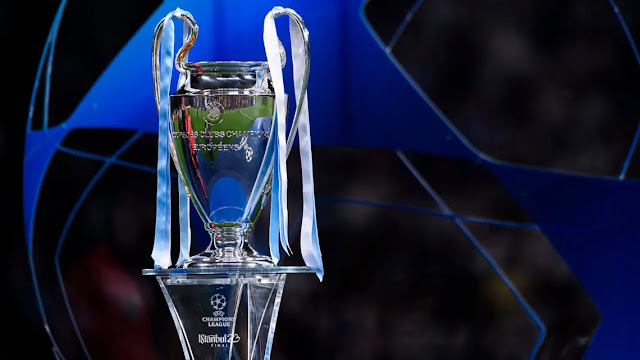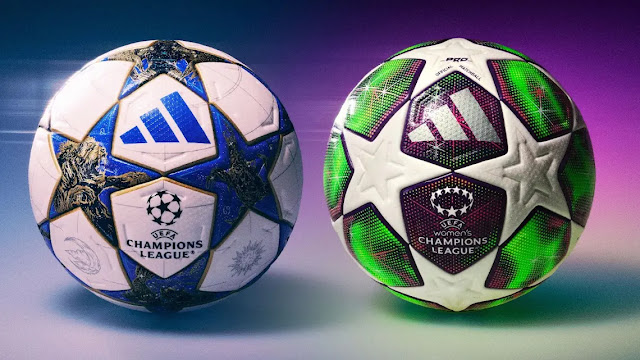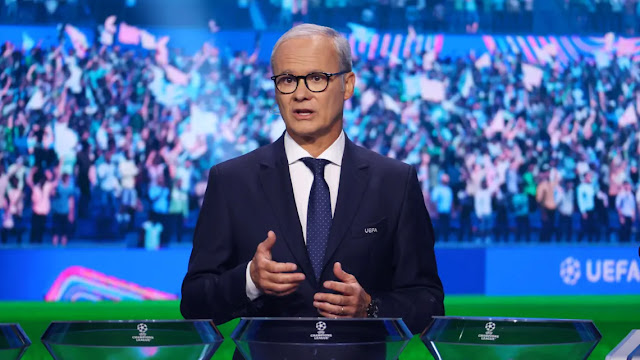The 71st season of Europe’s elite club competition, now in its 34th year as the UEFA Champions League, is set to captivate football fans worldwide as it kicks off on July 8, 2025, and culminates in the grand final on May 30, 2026, at the Puskás Aréna in Budapest, Hungary. This iconic tournament, broadcast live on SuperSport, continues to be the pinnacle of club football, showcasing the continent’s top teams in a battle for supremacy, prestige, and the coveted 73.5cm, 7.5kg Champions League trophy. The 2025/26 season introduces a new league phase format, an expanded roster of teams, and a series of high-stakes matches that promise drama, excitement, and unforgettable moments.
The UEFA Champions League, rebranded from the European Cup in 1992, has evolved into a global phenomenon, drawing millions of viewers and generating billions in revenue for clubs, broadcasters, and UEFA. The 2025/26 season marks a significant milestone, as it builds on recent changes to the competition’s structure, designed to enhance competitiveness and inclusivity. With 36 teams competing in the league phase, up from the traditional 32, and a single league format replacing the group stage, the tournament aims to provide more matches, greater variety, and increased opportunities for smaller clubs to shine. This article offers an in-depth exploration of the 2025/26 Champions League, including its teams, schedule, format, historical significance, and broader impact on football and society.
Overview of the 2025/26 UEFA Champions League
The 2025/26 UEFA Champions League season began on July 8, 2025, with the first qualifying round and will run through to the final on May 30, 2026, in Budapest. The season features a diverse lineup of Europe’s top clubs, representing powerhouse leagues such as England’s Premier League, Spain’s La Liga, Italy’s Serie A, and Germany’s Bundesliga, alongside emerging teams from smaller footballing nations like Cyprus, Kazakhstan, and Azerbaijan. The competition’s new format, introduced in the 2024/25 season, replaces the traditional group stage with a single league phase, where each of the 36 teams plays eight matches against different opponents. The top eight teams advance directly to the round of 16, while those ranked ninth to 24th compete in a knockout phase play-off.
The final, hosted at the Puskás Aréna, marks the first time Hungary will stage the Champions League final, following its successful hosting of the 2023 UEFA Europa League final. The winner of the 2025/26 Champions League will not only claim the iconic trophy but also secure a place in the 2026/27 Champions League league phase (if not already qualified via their domestic league) and earn the right to face the 2025/26 UEFA Europa League winners in the 2026 UEFA Super Cup. The competition’s prestige, coupled with its financial rewards, makes it a defining moment in the footballing calendar, with clubs vying for both glory and economic benefits.
Teams Competing in the League Phase
The 2025/26 Champions League league phase features a formidable lineup of 36 teams, reflecting the depth and diversity of European football. Twenty-nine teams qualified automatically based on their domestic league performances or as holders of the Champions League (Paris Saint-Germain) or UEFA Europa League (Tottenham). Seven additional spots were filled through qualifying rounds, culminating in the play-offs in August 2025. Two places were allocated via the European Performance Spots, which reward associations with strong performances in UEFA competitions.
The provisional list of teams, pending final confirmation due to potential disciplinary or licensing issues, includes:
England: Liverpool, Arsenal, Manchester City, Chelsea, Tottenham, Newcastle
Spain: Barcelona, Real Madrid, Atlético de Madrid, Athletic Club, Villarreal
Italy: Napoli, Inter, Atalanta, Juventus
Germany: Bayern München, Bayer Leverkusen, Eintracht Frankfurt, Borussia Dortmund
France: Paris Saint-Germain, Marseille, Monaco
Netherlands: PSV, Ajax
Portugal: Benfica*, Sporting CP
Belgium: Club Brugge*, Union Saint-Gilloise
Türkiye: Galatasaray
Czechia: Slavia Praha
Greece: Olympiacos
Denmark: Copenhagen*
Norway: Bodø/Glimt*
Cyprus: Pafos*
Kazakhstan: Kairat Almaty*
Azerbaijan: Qarabağ*
(*Play-off winners)
This lineup includes traditional powerhouses like Real Madrid, Bayern München, and Manchester City, alongside surprise entrants such as Pafos from Cyprus and Kairat Almaty from Kazakhstan, reflecting the competition’s increasing inclusivity. Notably, all Russian teams remain suspended from UEFA competitions due to ongoing geopolitical sanctions, a decision that has sparked debate about the balance between sport and politics.
The inclusion of Paris Saint-Germain as both domestic league qualifiers and Champions League holders required rebalancing, ensuring fairness in the allocation of spots. The European Performance Spots, awarded based on UEFA coefficient rankings, further enhance the competition’s diversity by providing opportunities for clubs from less prominent leagues to compete on Europe’s biggest stage.
Schedule and Key Dates
The 2025/26 Champions League is structured around a series of qualifying rounds, a league phase, knockout phase play-offs, and the traditional knockout stages leading to the final. Below is a detailed breakdown of the key dates, subject to change:
Qualifying Rounds:
First qualifying round: July 8/9 & 15/16, 2025
Second qualifying round: July 22/23 & 29/30, 2025
Third qualifying round: August 5/6 & 12, 2025
Play-offs: August 19/20 & 26/27, 2025
League Phase:
Matchday 1: September 16–18, 2025
Matchday 2: September 30–October 1, 2025
Matchday 3: October 21/22, 2025
Matchday 4: November 4/5, 2025
Matchday 5: November 25/26, 2025
Matchday 6: December 9/10, 2025
Matchday 7: January 20/21, 2026
Matchday 8: January 28, 2026
Knockout Phase:
Knockout phase play-offs: February 17/18 & 24/25, 2026
Round of 16: March 10/11 & 17/18, 2026
Quarter-finals: April 7/8 & 14/15, 2026
Semi-finals: April 28/29 & May 5/6, 2026
Final: May 30, 2026 (Puskás Aréna, Budapest)
Draws:
First qualifying round: June 17, 2025
Second qualifying round: June 18, 2025
Third qualifying round: July 21, 2025
Play-offs: August 4, 2025
League phase: August 28, 2025
Knockout phase play-offs: January 30, 2026
Round of 16, quarter-final, semi-final, and final: February 27, 2026
The league phase, a significant departure from the traditional group stage, ensures that each team plays eight matches against different opponents, increasing the number of competitive fixtures and providing fans with a greater variety of matchups. The knockout phase play-offs add an extra layer of drama, giving teams ranked ninth to 24th a chance to advance to the round of 16.
The Final: Puskás Aréna, Budapest
The 2025/26 Champions League final will be held at the Puskás Aréna, a state-of-the-art stadium in Budapest, Hungary, with a capacity of 67,215. Opened in 2019, the venue has quickly established itself as a premier destination for international football, having hosted the 2023 UEFA Europa League final. The 2026 final will mark the first time Hungary hosts the Champions League decider, a milestone for a nation with a rich footballing heritage, exemplified by the legendary Ferenc Puskás, after whom the stadium is named.
The choice of Budapest reflects UEFA’s commitment to spreading the competition’s showcase event across Europe, giving fans in less traditional footballing hubs the opportunity to experience the pinnacle of club football. The final, scheduled for May 30, 2026, is expected to draw a global audience of hundreds of millions, with SuperSport providing live coverage to fans across Africa and beyond.
The Champions League Trophy and Rewards
The UEFA Champions League trophy, standing 73.5cm tall and weighing 7.5kg, is one of the most iconic prizes in sport. Crafted from silver and featuring distinctive “handles,” the trophy symbolizes excellence, prestige, and the culmination of a grueling campaign. Beyond the honor of lifting the trophy, the 2025/26 winners will secure a place in the 2026/27 Champions League league phase, provided they do not qualify through their domestic league. They will also earn a spot in the 2026 UEFA Super Cup, where they will face the winners of the 2025/26 UEFA Europa League.
The financial rewards of the Champions League are equally significant. Clubs earn substantial revenue from matchday income, broadcast rights, and UEFA prize money, which can amount to hundreds of millions of euros for the winners. For smaller clubs, such as Pafos or Qarabağ, participation in the league phase alone can provide a financial lifeline, enabling investment in infrastructure, youth development, and player recruitment.
The New Format: A Game-Changer for European Football
The 2025/26 season continues the UEFA Champions League’s transition to a new format, introduced in 2024/25, designed to enhance competitiveness and fan engagement. The traditional group stage, which featured eight groups of four teams, has been replaced by a single league phase with 36 teams. Each team plays eight matches—four home and four away—against opponents drawn from four seeding pots based on UEFA coefficients. This ensures a mix of high-profile clashes and intriguing matchups between teams from different footballing cultures.
The top eight teams in the league phase advance directly to the round of 16, while those ranked ninth to 24th enter a two-legged knockout phase play-off to compete for the remaining eight spots. The bottom 12 teams are eliminated, creating a high-stakes environment where every match counts. This format increases the number of competitive games, reduces the likelihood of “dead rubber” matches, and gives smaller clubs a chance to make an impact against Europe’s elite.
Critics of the new format argue that it places additional strain on players due to the increased number of matches, potentially exacerbating concerns about fixture congestion and player welfare. However, supporters of the change highlight its benefits, including greater inclusivity, more opportunities for underdog stories, and enhanced revenue for clubs and UEFA. The format also aligns with UEFA’s broader strategy to keep the Champions League relevant in an era of competing proposals, such as the controversial European Super League.
Historical Significance of the Champions League
The UEFA Champions League, originally launched as the European Cup in 1955, has a storied history that has shaped the landscape of global football. The competition was conceived by French journalist Gabriel Hanot as a way to determine Europe’s best club, and it quickly became the gold standard for club football. Iconic moments, such as Real Madrid’s dominance in the 1950s, Manchester United’s comeback in the 1999 final, and Liverpool’s “Miracle of Istanbul” in 2005, have cemented the tournament’s place in football folklore.
The rebranding to the Champions League in 1992 marked a turning point, introducing the group stage format and increasing the competition’s commercial appeal. Today, the Champions League is a global brand, with a reach that extends far beyond Europe. Its anthem, composed by Tony Britten, is instantly recognizable, and its matches are watched by billions of fans across the globe. The tournament has also been a platform for some of the greatest players in history, from Johan Cruyff and Diego Maradona to Lionel Messi and Cristiano Ronaldo.
The 2025/26 season builds on this legacy while embracing changes to ensure the competition remains relevant in a rapidly evolving football landscape. The inclusion of teams from emerging football nations, such as Cyprus and Kazakhstan, reflects the growing globalization of the sport, while the new format aims to balance tradition with innovation.
Cultural and Economic Impact
The UEFA Champions League is more than a sporting event; it is a cultural and economic juggernaut. The tournament generates billions of euros in revenue through broadcast rights, sponsorships, and ticket sales, making it one of the most lucrative competitions in sport. For clubs, participation in the Champions League can transform their financial fortunes, enabling investments in stadiums, training facilities, and player transfers. For smaller clubs, such as Bodø/Glimt or Qarabağ, the financial windfall from reaching the league phase can be a game-changer, providing resources to compete domestically and regionally.
The competition also has a profound cultural impact, uniting fans across borders and creating shared moments of joy, heartbreak, and drama. From the electric atmosphere of Anfield to the passionate support at the San Siro, Champions League nights are synonymous with footballing passion. The tournament’s global reach has made it a platform for cultural exchange, with fans from diverse backgrounds coming together to celebrate the beautiful game.
Economically, the Champions League boosts local economies in host cities, particularly for the final. Budapest’s Puskás Aréna is expected to see a surge in tourism, with fans, media, and sponsors descending on the city for the May 30, 2026, final. The event will showcase Hungary’s footballing heritage and infrastructure, further cementing its place on the global stage.
Challenges and Controversies
The 2025/26 Champions League is not without its challenges and controversies. The new format, while innovative, has raised concerns about player fatigue and the sustainability of an already packed football calendar. The absence of Russian clubs, due to UEFA’s sanctions, has sparked debates about the politicization of sport, with some arguing that the exclusion unfairly penalizes athletes and fans. Additionally, the financial disparity between Europe’s elite clubs and those from smaller leagues remains a point of contention, with critics calling for greater revenue sharing to level the playing field.
The specter of the European Super League, a breakaway competition proposed by a group of elite clubs in 2021, continues to loom over the Champions League. While the Super League was largely abandoned due to fan backlash, the underlying tensions between clubs, UEFA, and domestic leagues persist. The 2025/26 season will be a test of UEFA’s ability to balance commercial interests with the values of inclusivity and competition that define the Champions League.
Looking Ahead: The Road to Budapest
As the 2025/26 UEFA Champions League unfolds, fans can expect a season of high drama, unexpected upsets, and moments of brilliance. The league phase, with its diverse matchups, will set the stage for a fiercely competitive knockout phase, culminating in the final in Budapest. Teams like Manchester City, Real Madrid, and Bayern München will be favorites, but the inclusion of underdogs like Pafos and Kairat Almaty ensures that surprises are possible.
For fans, the Champions League offers a chance to witness football at its finest, with SuperSport providing comprehensive coverage of every match. From the qualifying rounds to the final, the 2025/26 season promises to deliver unforgettable moments that will add to the rich tapestry of the competition’s history.
Conclusion
The 2025/26 UEFA Champions League, now in its 71st season, represents the pinnacle of club football, bringing together Europe’s elite teams in a quest for glory. With a new league phase format, an expanded roster of 36 teams, and a final set to be held at Budapest’s Puskás Aréna, the season is poised to captivate audiences worldwide. The competition’s blend of tradition, innovation, and global appeal ensures its place as a cornerstone of the sporting world, while its cultural and economic impact resonates far beyond the pitch. As the road to Budapest unfolds, the 2025/26 Champions League promises to deliver a season of drama, passion, and unforgettable footballing moments.






